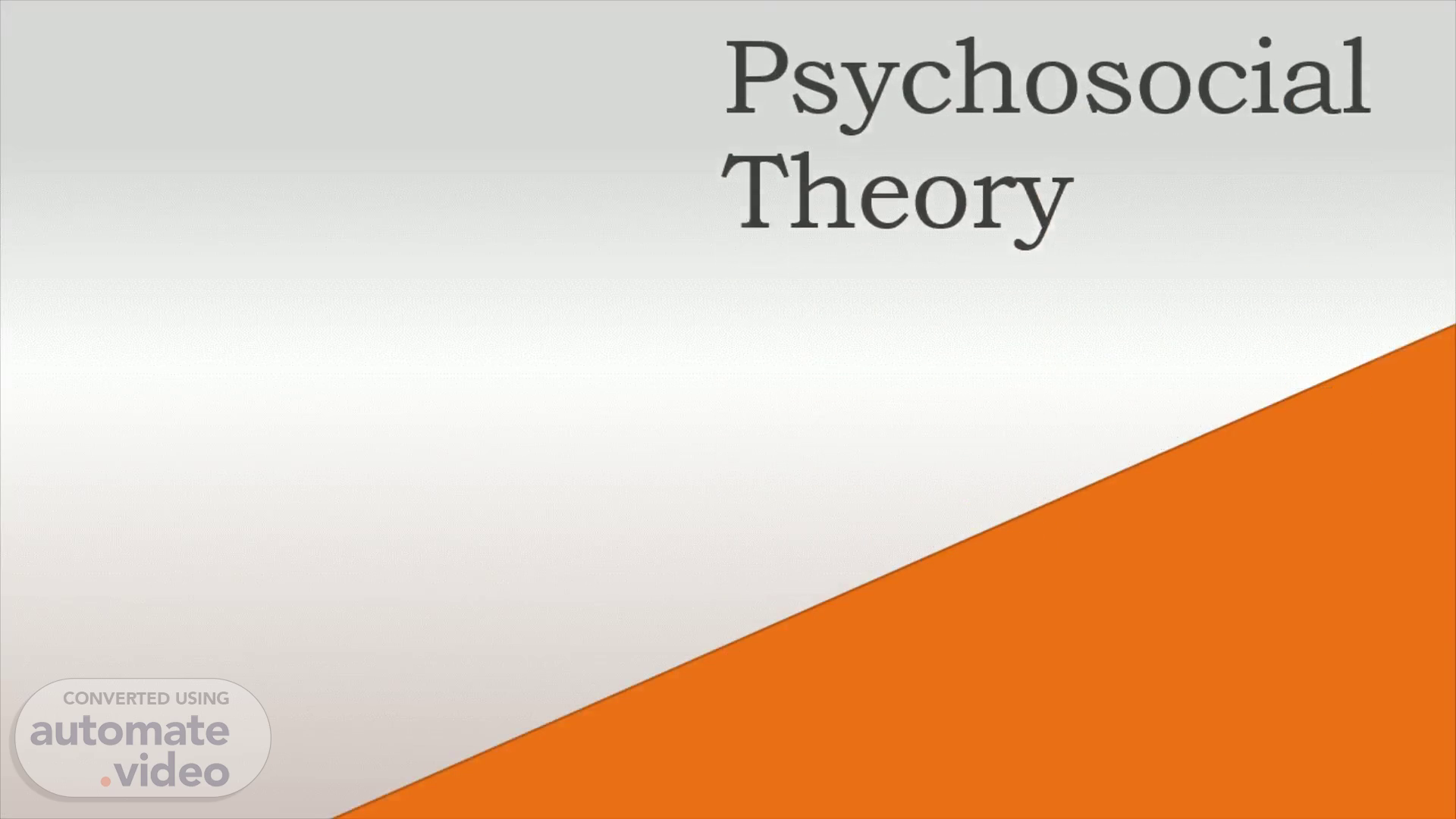
PowerPoint Presentation
Scene 1 (0s)
Psychosocial Theory. Proposed by erik erikson .. abstract.
Scene 2 (14s)
abstract. Hi, What do you see in this picture?. Oh, well it is a stages of human development.
Scene 3 (31s)
Stages of Psychosocial Development Human Development is a predictable process that moves through various stages. Age Early Infancy olescence Maturity Middle Young Adulthood Adulthood.
Scene 4 (39s)
Infancy. Early Childhood. Stages of Psychosocial Development.
Scene 5 (58s)
All about breastfeeding positions and latch | baby gooroo.
Scene 6 (1m 10s)
. If a child successfully develops trust, the child will feel safe and secure in the world.
Scene 7 (1m 27s)
When to Start Potty Training Your Toddler | Parents.
Scene 8 (1m 45s)
Erik Erikson 39 s Stages of Psychosocial Development They Don 39 t Always Happen in Order by Geoffrey Wallis Medium.
Scene 9 (2m 3s)
Initiative vs Guilt. Preschool 3 – 5 years. Eyes - Fear.
Scene 10 (2m 11s)
Preschool 3 – 5 years. abstract. Children who are successful at this stage feel capable and able to lead others. Those who fail to acquire these skills are left with a sense of guilt, self-doubt, and lack of initiative..
Scene 11 (2m 25s)
School Age 5 - 13 years. Industry vs Inferiority.
Scene 12 (2m 33s)
. Children who are encouraged and commended by parents and teachers develop a feeling of competence and belief in their skills. Those who receive little or no encouragement from parents, teachers, or peers will doubt their abilities to be successful..
Scene 13 (2m 50s)
School Age 5 - 13 years. abstract. Through social interactions, children begin to develop a sense of pride in their accomplishments and abilities.Children need to cope with new social and academic demands. Success leads to a sense of competence, while failure results in feelings of inferiority..
Scene 14 (3m 9s)
Adolescence 13 – 21 Years. Identity Vs Confusion.
Scene 15 (3m 22s)
Adolescence 13 – 21 Years. abstract. Teens need to develop a sense of self and personal identity. Success leads to an ability to stay true to yourself, while failure leads to role confusion and a weak sense of self..
Scene 16 (3m 43s)
Young Adulthood 21 – 39 Years. Intimacy Vs Isolation.
Scene 17 (3m 51s)
Erik Erikson 39 s Stages of Psychosocial Development They Don 39 t Always Happen in Order by Geoffrey Wallis Medium.
Scene 18 (4m 11s)
Middle Adulthood 40 - 65 Years. Generativity Vs Stagnation.
Scene 19 (4m 22s)
The Psychosocial Theories of Erik Erikson A Basic Understanding Owlcation.
Scene 20 (4m 41s)
Maturity 65 Years & Above. Ego Integrity Vs Despair.
Scene 21 (5m 0s)
. Those who feel proud of their accomplishments will feel a sense of integrity. Successfully completing this phase means looking back with few regrets and a general feeling of satisfaction. These individuals will attain wisdom, even when confronting death..
Scene 22 (5m 14s)
. Those who are unsuccessful during this stage will feel that their life has been wasted and may experience many regrets. The person will be left with feelings of bitterness and despair.
Scene 23 (5m 27s)
The Psychosocial Theories of Erik Erikson A Basic Understanding Owlcation.